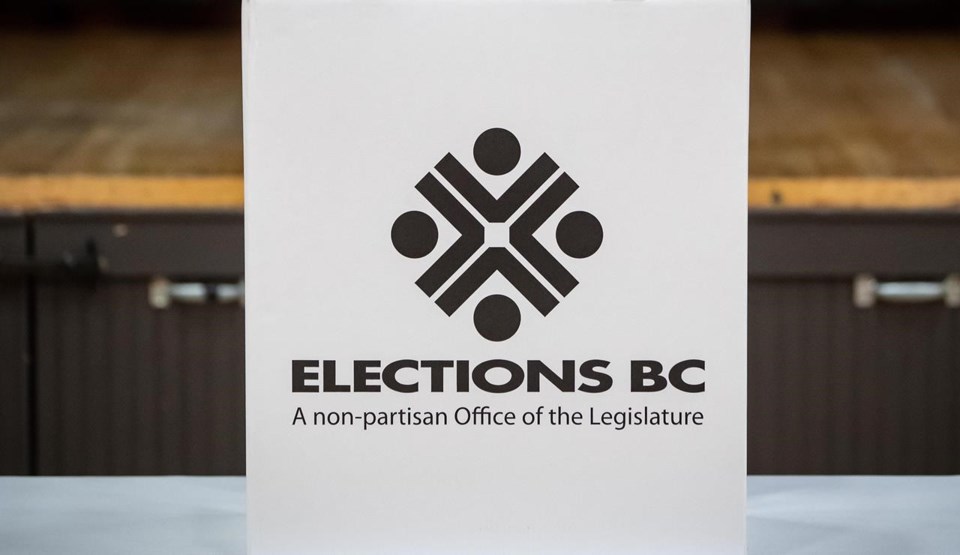When Merlin Blackwell ran for mayor four years ago in the small community of Clearwater in British Columbia's North Thompson River valley, the issues were simple, to say the least.
"It was, 'Are you going to build us a dog park?' 'When are you going to fix the roads?'" Blackwell said.
That was before the COVID-19 pandemic struck, affordability spiralled out of control and Clearwater's hospital became a poster child for the health-care crisis, holding the undesirable title of most emergency department closure days — 60 — in B.C. between early July and September.
Now, residents are asking local candidates in the Oct. 15 election how hard they will fight for nurses and doctors, and whether they'll help health workers secure housing, Blackwell said, noting it takes creative thinking to do so with a $2.8-million annual municipal budget.
"Health care is not part of the mandate of municipal governments in any way, but it's what our citizens need us to do, so we have to get involved," said Blackwell, who is running again.
"That's the big change, is the amount of advocacy that local government has to get involved in, in basically provincial issues — because we have no choice."
Clearwater isn't alone in reporting a radical shift in focus this campaign to issues that are actually provincial or federal in scope. With cumulative crises including homelessness, crime, affordability and climate disasters, municipal politicians across the province are finding themselves tackling major issues from the ground up.
In some cases, they're teaming up to share information, help one another and unify for a louder voice to advocated for what they need.
When flooding struck Princeton, B.C., the community looked beyond its immediate neighbours to communities that faced similar disasters, like Merritt, Hope and those in the Fraser Valley. Those relationships have grown as issues overlap, like ambulance shortages and substance-use issues, Mayor Spencer Coyne said.
"We can call each other up and say, 'Hey, you know, we're having this problem. I know, you guys dealt with it, how did you deal with it?'" he said. "I think there's more and more of those growing, especially as we get frustrated as provincial services are underfunded and having a hard time staying afloat."
Coyne, who first joined local government in the early 2000s, said he's noticed a marked change in the relationship between municipalities.
"It was different back then. I feel like now we're facing so many similar issues that when we get together, we can really dive into some of these things and we problem-solve them together," he said.
Ahead of the Union of B.C. Municipalities' annual convention last month in Whistler, Blackwell said he and the mayors of Port McNeill, Fort St. John, Whistler and Ashcroft created an alliance on health care with a goal of sharing bottom-up solutions to the crisis that municipalities could reasonably tackle.
"We started out with the five of us by the time we hit UBCM. A couple weeks later, we had 30 or 40 people that wanted to be involved," Blackwell said.
Although the provincial government could be an easy target, Blackwell said he's hesitant to point fingers when the problems exist beyond B.C. He said he's satisfied with the access he's had to cabinet ministers and the overall response, acknowledging that there's no quick fix for many of the crises underway.
"I think the enormity of some of these problems is more of a challenge than anything," he said.
Mayor Ward Stamer, who has secured a new term by acclamation in Barriere, said getting answers individually can be tough not just from the province, but also health authorities and other bodies. After an infant died in his community while waiting for an ambulance, he said he had trouble reaching anyone to find out what went wrong.
"You know how hard it was to try to get anybody to answer the phone? It took just about two weeks before somebody was willing to even speak to us," he said.
That said, Stamer said he was also happy with the conversations he had with cabinet ministers and others at UBCM and hopes to see some changes as a result.
"The proof will be in the pudding," he said.
Victoria Mayor Lisa Helps, who is not running again, said city mayors recently came up with a way to influence provincial action on social disorder, which she attributed to the near collapse of the mental health and health-care systems.
In May, the province announced that, in co-operation with the B.C. Urban Mayors' Caucus, it had hired two experts to investigate and report on prolific offenders and random violent attacks.
"What stimulated that whole investigation was us gathering our data and saying to the province, 'Here is what's happening in our municipalities.' So even there, we do have a role to play in sharing information and shining a light on issues," said Helps, co-chair of the caucus.
At the same time, she said there's often blame laid elsewhere when local governments have significant power to make change independently, such as through land-use and zoning policy to increase housing availability.
"There is a lot that cities can do, particularly on the housing front, that doesn't require one ounce of finger lifting from the province. But what it does require is political courage to make those moves."
This report by The Canadian Press was first published Oct. 10, 2022.
Amy Smart, The Canadian Press



